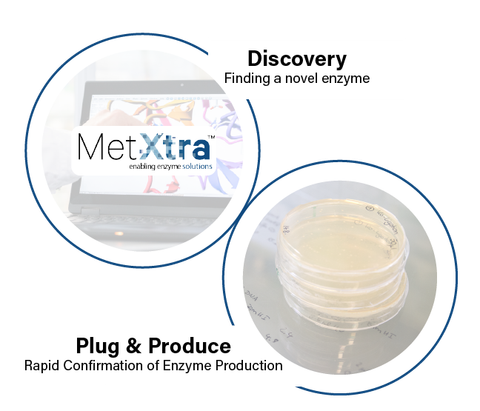

Reflections from CPHI 2025: Enzyme Innovation at the Heart of Pharmaceutical Progress
After an engaging week at CPHI Frankfurt 2025, our team at BRAINBiocatalysts has returned energised by the discussions shaping the future of enzyme innovation in the industry. The event brought together leaders from across the global value chain, from drug developers and CDMOs to technology specialists, all focused on how biocatalysis and enzyme technologies are redefining modern manufacturing.
A Shift Towards Biological and Sustainable Manufacturing
One of the strongest themes from CPHI this year was the growing shift towards biological solutions. Across panel sessions and partner discussions, it was clear that enzymes are now viewed as critical enablers for sustainable pharmaceutical production, improving reaction selectivity, reducing solvent use, and lowering energy demands.
Yet, many companies continue to face challenges when moving from a promising biocatalytic reaction to a robust, commercially scalable process. The key hurdle isn’t discovering enzymes, it’s developing, optimising, and manufacturing them efficiently at scale.
Bridging the Gap Between Discovery and Production
Several speakers highlighted the industry’s need for greater integration across the enzyme development pipeline. While AI and metagenomic mining are accelerating enzyme discovery, scaling those discoveries into reproducible manufacturing systems remains a significant barrier.
At BRAINBiocatalysts, we see this as an area where true value can be added. By combining MetXtra™ for AI-guided enzyme discovery with our Plug & Produce production strain platform, we’re helping customers bridge the gap between research and manufacturing, ensuring that enzyme innovation translates into real-world industrial performance.

Flexibility Driving Customer Value
Another key takeaway was the growing demand for flexibility in how enzyme development services are accessed. Pharmaceutical companies want options that match their specific stage of development, whether that’s discovering a novel enzyme, improving an existing one, or transferring a mature process straight into production.
Our modular work packages were designed with exactly this in mind. They allow customers to start at any point in the process, using either standardised protocols for speed or bespoke optimisation for complex technical challenges. It’s an approach that lowers barriers to entry while maintaining technical depth and scalability.
Scaling Up with Confidence
Scaling remains one of the most discussed topics at CPHI and for good reason. Moving from 3L development batches to 750L or 10,000L commercial fermentations presents both biological and engineering challenges. Achieving consistent yield, purity, and reproducibility demands deep process understanding and experience across multiple host systems.
With more than 190 successful scale-up projects across E. coli, Bacillus, and Komagataella (formerly Pichia) platforms, we’ve learned that success at scale is not just about process control it’s about designing for scalability from the very beginning.
Data, AI, and the Future of Predictive Bioprocessing
This year’s event also reinforced how data science and automation are becoming central to enzyme and process development. Machine learning tools are now being used to predict enzyme performance, optimise strain design, and refine fermentation parameters in real time.
As the industry moves toward more predictive bioprocessing, collaboration between bioinformatics, strain engineering, and process design will be key to achieving faster, more reliable outcomes.
Looking Ahead
CPHI 2025 made it clear that the future of pharmaceutical biomanufacturing will be shaped by innovation, integration, and collaboration. Enzymes will continue to play a central role in enabling greener, more efficient, and more precise chemical transformations.
At BRAINBiocatalysts, we’re committed to supporting this transformation, providing the expertise, technology, and flexibility to turn enzyme innovation into scalable manufacturing success.